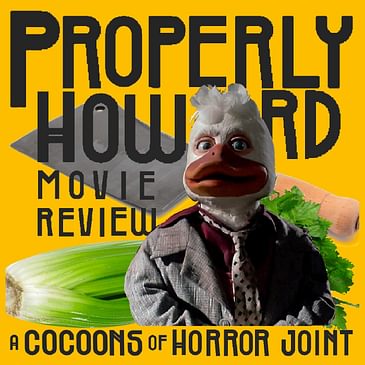Steve and Anthony luxuriate in Hero at Large.
Advertising Inquiries: https://redcircle.com/brands
Privacy & Opt-Out: https://redcircle.com/privacy
Related Episodes
#61 - Berry Gordy's The Last Dragon
In the final episode of our Felonies and Fugazi's themed season, Steve and Anthony glow over the Last Dragon. Advertising Inquiries: https://redcircle.com/brands Privacy & Opt-Out: https://redcircle.com/privacy
#59 - My Cousin Vinny
Steve, Anthony, and Larry get gritty with My Cousin Vinny. Advertising Inquiries: https://redcircle.com/brands Privacy & Opt-Out: https://redcircle.com/privacy
Axel F. Anticipation and Listener Feedback
Steve and Anthony discuss their expectations for a third Beverly Hills Cop film. Then they consider Howardhead feedback. Advertising Inquiries: https://redcircle.com/brands Privacy & Opt-Out: https://redcircle.com/privacy


